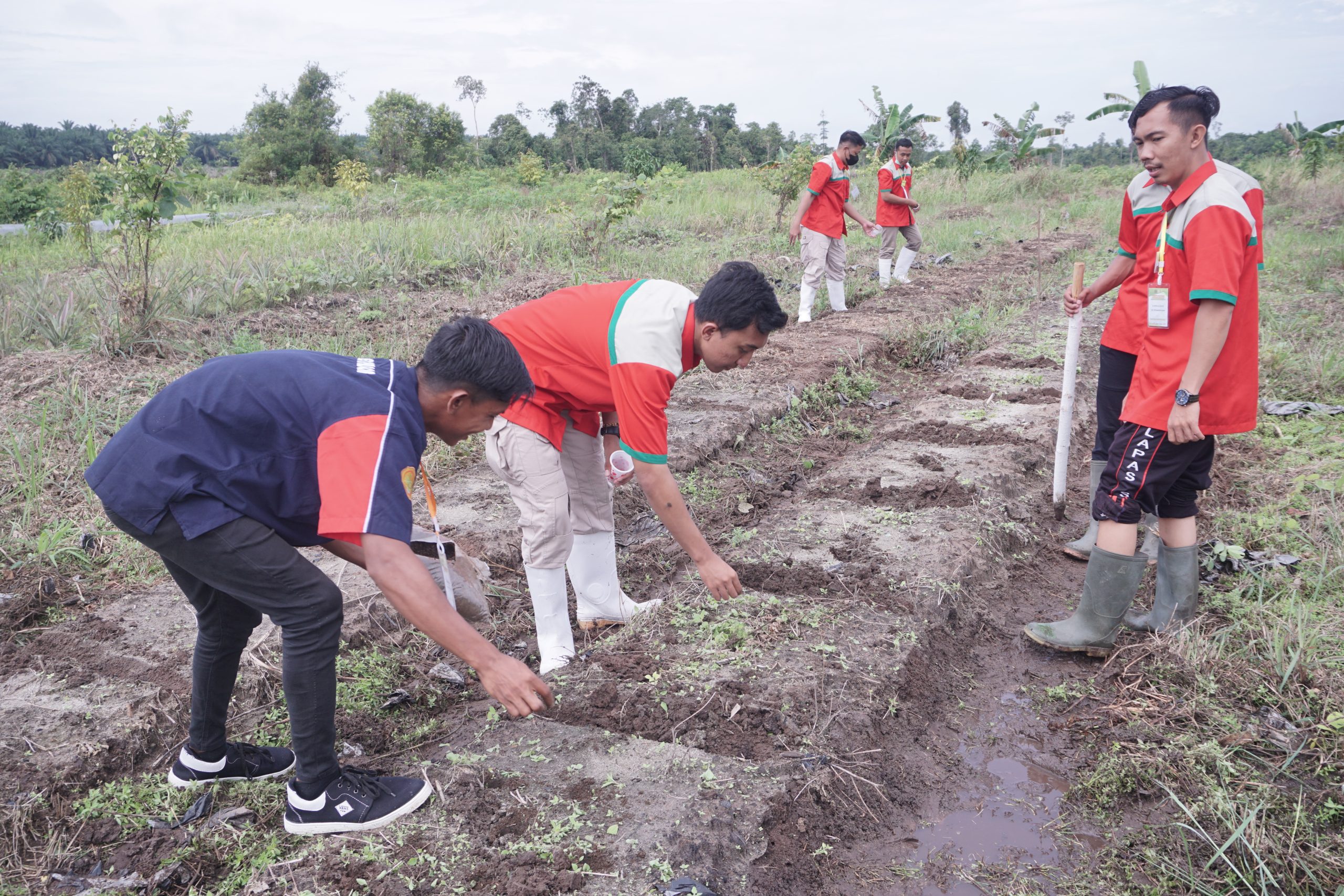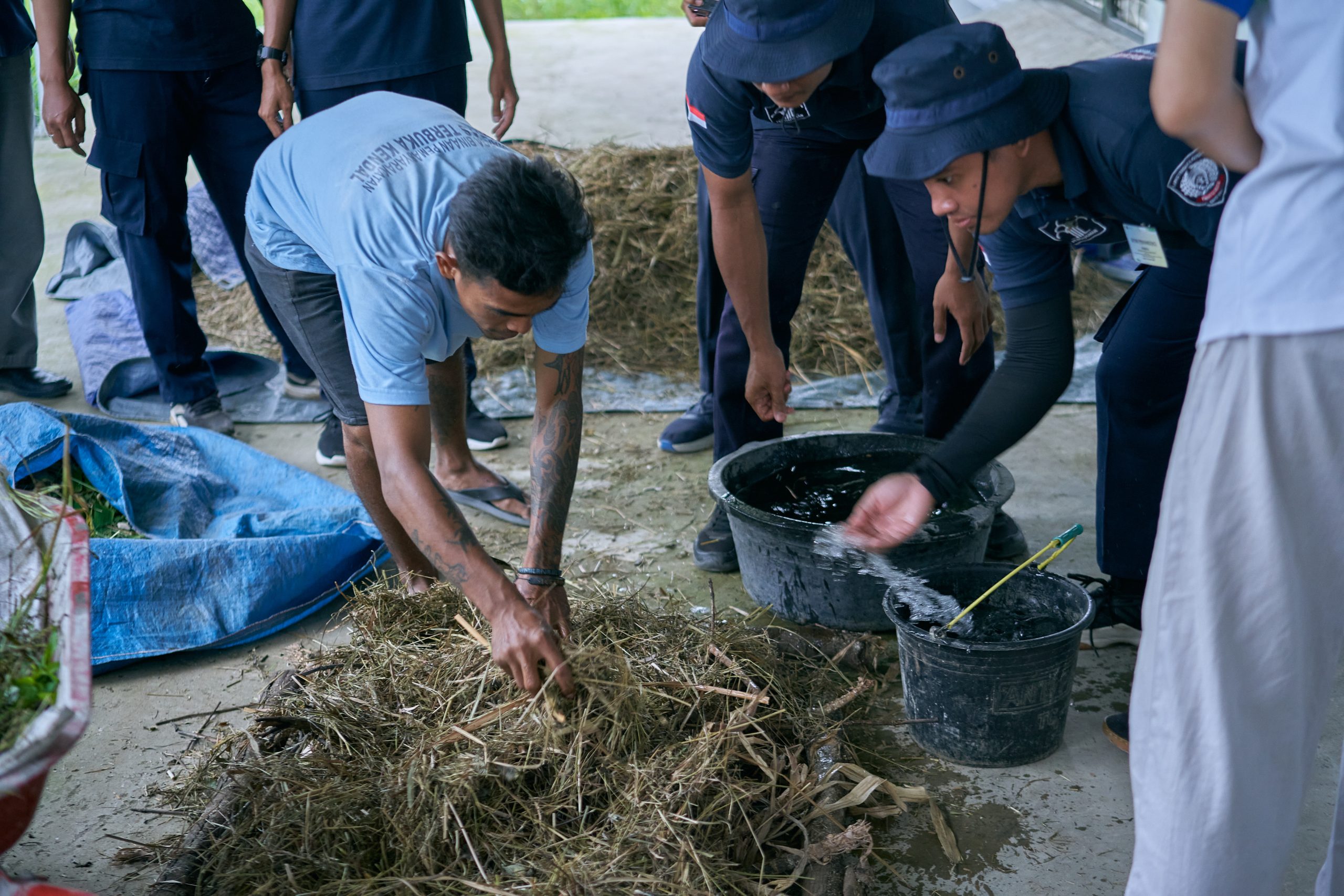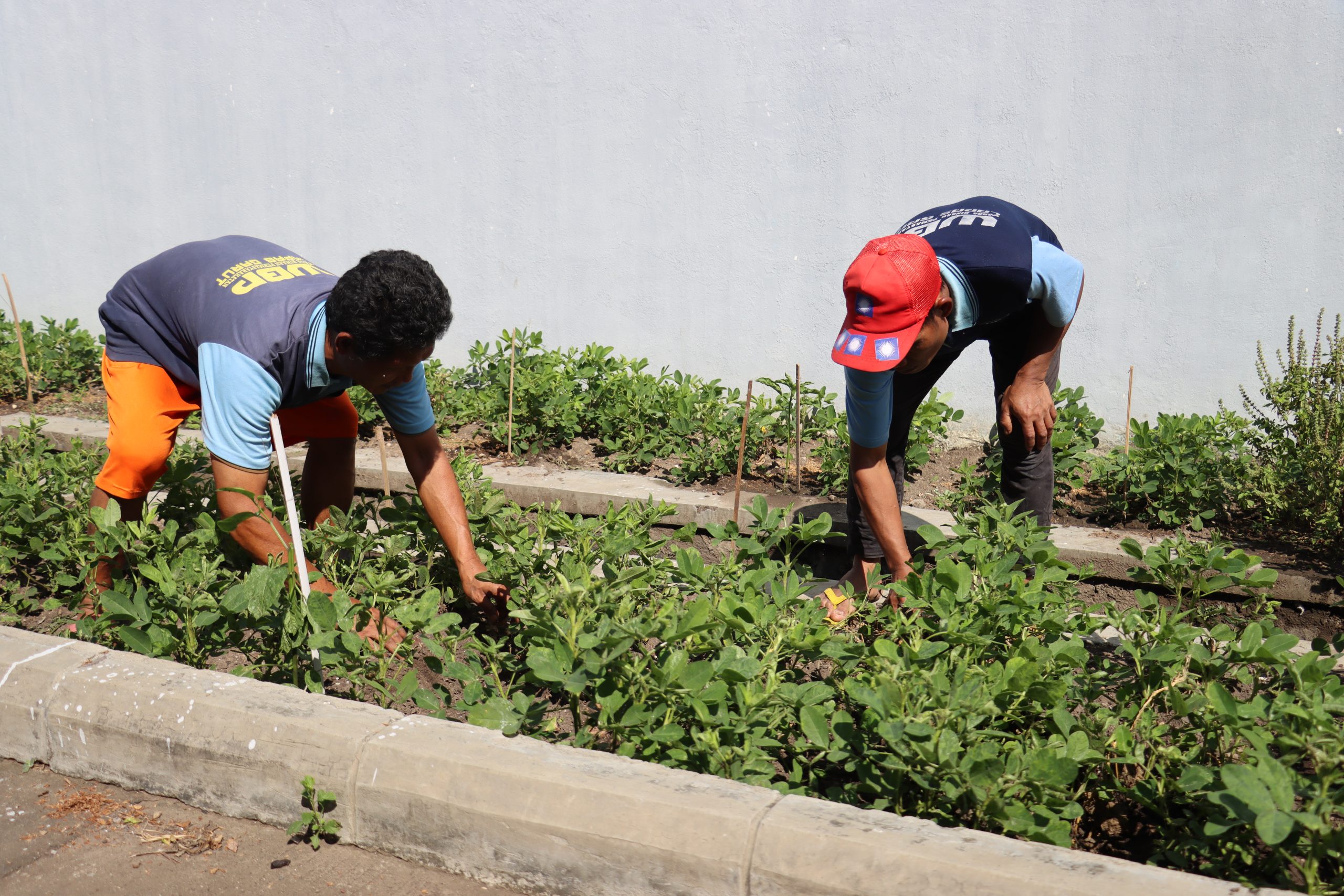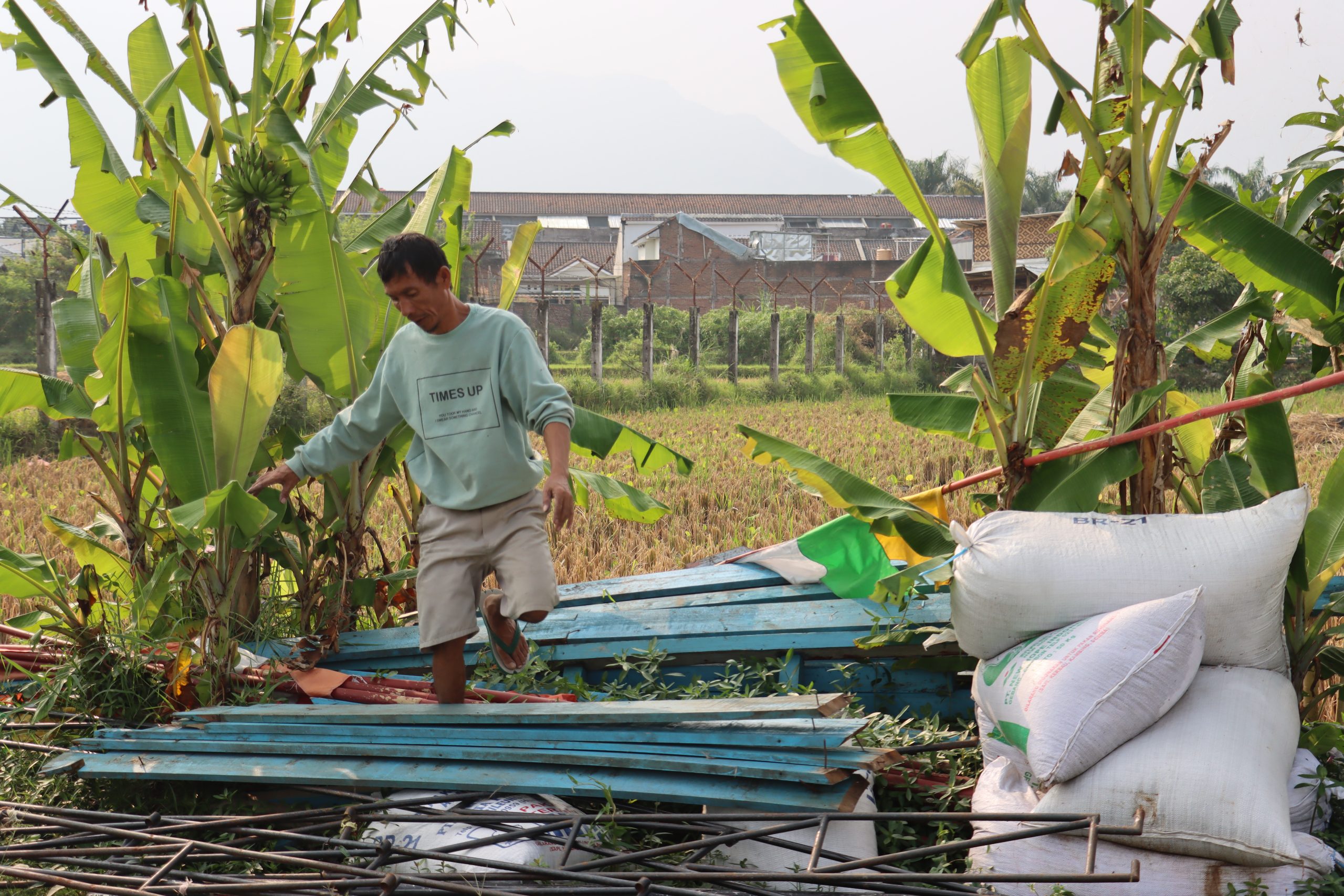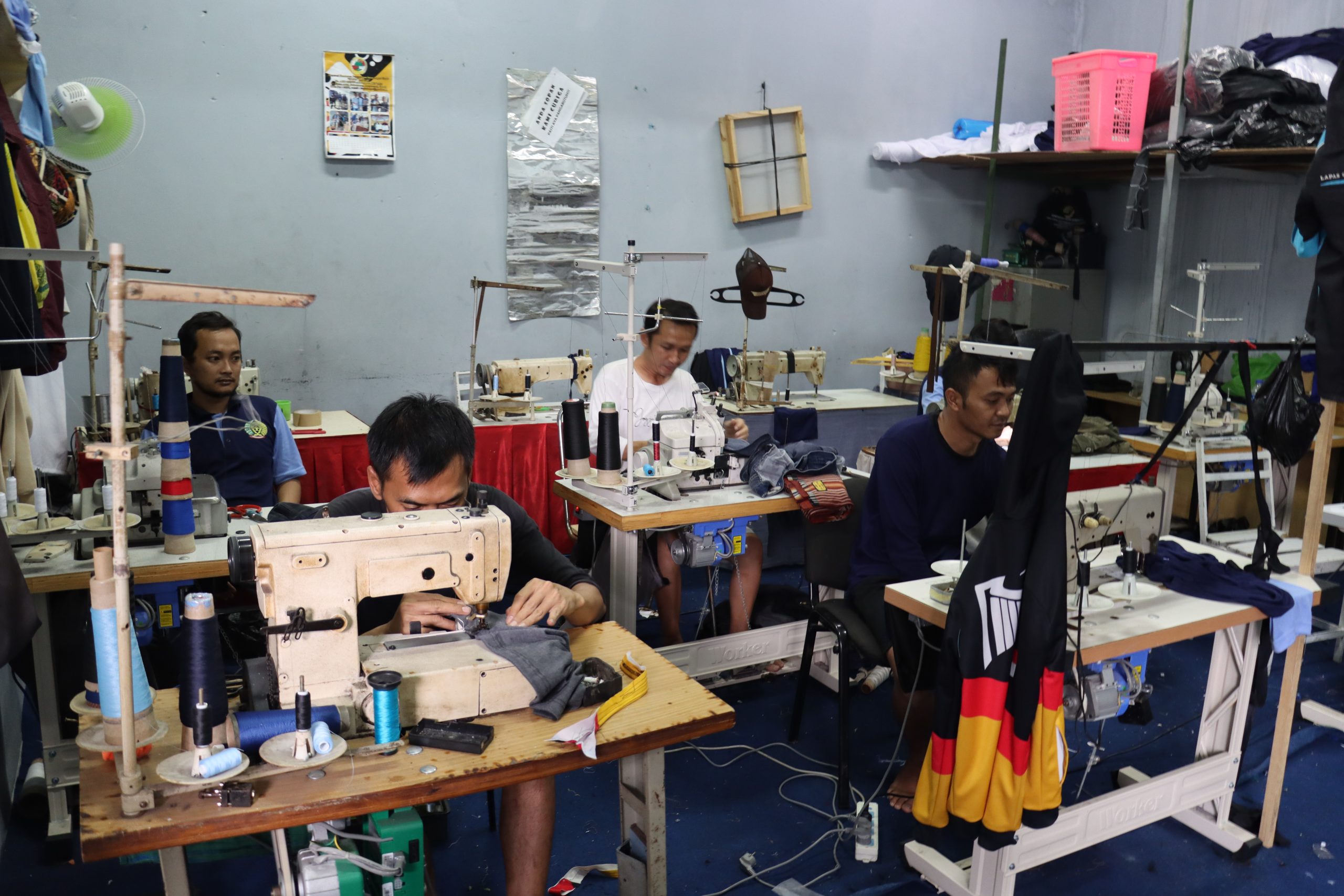Co-creation of regenerative agriculture & Agroecology for inmates “Garden of Hope”: therapy healing horticulture and initiating regenerative food systems
Indonesia
This 15+ year-long project implemented in Indonesia focuses on agroecological practices, inmate therapeutic gardening, and regenerative food Systems.
Lead organization
The Indonesia Biru Lestari Initiative Foundation (Yayasan Inisatif Indonesia Biru Lestari) known as WAIBI is a non-profit organization founded in 2014, which is concerned with global issues and their impact on environmental and social conditions towards achieving Sustainable Development. WAIBI promotes a Circular Economy approach, urban farming practices in communities, and resilience-based awareness. WAIBI is the leading organization in regenerative food system transformation in Indonesia through promotion of agroecological practices and agrobiodiversity.
Partners organizations:
Directorate General of Correction, Ministry of Immigration and Corrections; Agricultural Human Resources Development and Counseling Agency, Ministry of Agriculture; Food and Agriculture Organization (FAO); United Nations Environment Programme (UNEP); Global Alliance for Improved Nutrition (GAIN); Sarikat Buruh Muslimin Indonesia (Sarbumusi)
Main beneficiaries
Farmers, prisoners (with drugs issues) and agroecology/regenerative trainers.
Country
Indonesia
Timeline
2014 ongoing
Funding
Bank of Indonesia and open donation.
Mission
- Overseeing the formulation of Local Nutritious Food Provision Policy through Regenerative Food Systems
- WAIBI provides evidence-based recommendations that help the government formulate healthy food provision policy
- Realizing former Correctional Inmates to return to carrying out social functions like other communities, as well as maintaining and preserving the environment both around and outside prisons
Context
- In Indonesia, 89,5% of agricultural land is in an unsustainable condition with low land productivity and low soil organic carbon due to large use of chemical pesticides and fertilizers. Main agricultural production consists of various vegetables and fruits using different colors (like different types of amaranths, green, red, bicolor, etc.) and sensory (forms, taste, etc.) that stimulate sensory of the inmate gardeners and are barefoot practice, to attach body with the soil directly.
- On the political side, the national Law No. 22 Year 2019, mentions that agriculture practices in Indonesia shall be based on agroecosystems approach in conservation agriculture and follow the principle of healthy soil. Thus, practices such as regenerative agriculture, natural farming and organic farming are adopted as good practices in agriculture. In addition, at the regional level, there is an on-going regional initiative to develop ASEAN guidelines for the agroecology transition, which aims in turn at promoting the elaboration of national agroecology strategies in ASEAN countries.
Strategy
Objectives
- To develop nationwide agroecological practices demonstration plots;
- To mainstream agroecology as common practice and alternative through training modules and learning handbook for farmers;
- To influence and policy change through long-term development planning 2025-2045 to make the government commit to agroecology in Indonesia;
- To optimize the effective use of green open spaces in correctional institutions and mapping the potential of local resources in order to produce healthy, high-quality, and safe food resources for consumption (healthy, premium quality, & safety).
- To form personality through mental health recovery or recovery of the souls of prisoners through horticultural therapy (Horticultural Healing Therapy).
- To improve knowledge and skills in the field of integrated agriculture, urban farming: hydroponics, aquaponics, vertical farming, etc.
The project is using U Theory approach: in facilitating inmate open mind, open heart, and open will. Theory U developed by Peter Sange and Otto Scharmer that blends systems thinking, innovation, and leading change, with awareness practices. It allows us to update our mental and organizational operating systems for effecting change. As a therapeutic approach, agroecology implemented in horticulture can be a transformative way for inmates using U-Theory.
Activities
This project is composed of 3 different themes: (1) agroecological practices, (2) inmate therapeutic gardening, and (3) food systems.
These themes were approached through capacity building, policy change and partnership with the motto “together happy and makers others happy”.
Activities include:
- Facilitating dialogues to build a prototype of Indonesian agroecology. WAIBI invites and facilitates both government representatives (from Ministry of Agriculture, Directorate General of Correction, Ministry of Immigration and Corrections and Ministry of Development Planning) and NGOs such as Akademi Rakyat Mandiri Pangan (ARMP), FAO, Self Learning Institute, etc.
- Developing eight training modules won regenerative and agroecology in partnership with the Ministry of Agriculture. The modules consist of: (1) Agroecology Principles in Farming (2) Landscape approach in Regenerative Agriculture; (3) Low External Inputs and Biological and Organic Inputs; (4) Integrated Pest Management; (5) Integrated Poly farming and Agroforestry; (6) Post Harvest and Economy Added Value; (7) Farmers Organization and Cooperative and Entrepreneurship; (8) Regenerative Agriculture and Food Systems
- Developing 4 demonstration plots, with the promotion of self-production of natural fertilizers to substitute the MPK with plant-based fertilizers.
- Providing farmers with training on how they can make organic fertilizer on their own at a low cost (there are no incentives from the Ministry in this regard).
- Implementing a Memorandum of Understanding with the Directorate General of Corrections (from the Ministry of Justice to encourage inclusiveness and social reintegration in agribusiness development. This MOU is to secure collaborative work between Government and WAIBI, including to access the Government’s infrastructure (such as venue, tools, funding, etc.) to support the program.
- Organizing training of trainers on regenerative agriculture in two correctional institutions so that inmate gardening training is sustainable.
- Conducting technical consultation of agribusinesses in the prison in Kendal. As a follow up of the training, WAIBI provides consultation to trainees on how to implement the farm when they are released from the prison and want to develop a farming business.
- Providing Horticultural Healing Therapy activities such as Mindfulness, silent meditation, positive thinking therapy through Tai Chi and Yoga, but also focus group discussions and capacity development activities. To deliver agroecology and regenerative agriculture training for inmates to reduce aggressive levels and equip them with skills and potential for the future. Mindfulness training lasts three days in one correction unit but inmates are encouraged to do mindfulness by themselves.
Impacts and lessons learned
Outcomes and results:
- 390 inmates from 13 prisons/center joined the NAPI Berkebun program from 2018-2021. The therapeutic approach in horticulture implemented only in 1 center in Jakarta.
- In 2025, 8 training modules were developed and approved by the Ministry of agriculture.
- A Policy Framework for sustainable agriculture was developed: the Law 22/2019 on sustainable agriculture. This law acts on long-term development planning approach 2025-2045, to mainstream agroecological practices towards 80% of family farmers in Indonesia. Article 13 states that land use for agriculture cultivation shall be carried out with an agroecosystem approach.
- 22 participants took part in the technical consultations.
- Levels of aggression of inmates have been reduced by 30%.
- Recruitment of one participant, a former inmate who was the best participant in “changing mindset” training, who has been working for five years as trainer assistant.
Lessons learned:
- Involvement of multi-stakeholders and government support is more impactful. WAIBI start from 1 prison center and become 13 centers in 2021, and it is because the involvement of not only The Ministry of Correction, where the correction center/ prison resides but the involvement of Ministry of Agriculture and Ministry of Development Planning support to mainstream the practice into policy.
- Mindfulness (open hearts, open mind). As a therapeutic approach, it is important during the training and any session to bring heart and mind together. Mindfulness makes the process will going deep into the person and touch its emotional and inner side of the person. This is also important in changing the behavior of the person, especially for inmates. There is a strong collaboration between the brain and the heart. in changing behavior.
- Horticultural Healing Therapy reduces stress and boosts capacities. By healing the inner side of the inmate, it boosts their conscience to do right healing for themselves and their families. Calmness helps them to think clearly and to decide what is best for them and family, including growing food for their families, when they are released from prison.
- To have a food system transformation we need also a transformation of mentality. Lesson learned from the situation of inmates. They overcome food insecurity by realizing the importance of self-reliance and food production in their garden. And this can happen when they calm themselves and change their mentality.
Limiting barriers:
- The Law 22/2019 on sustainable agriculture has not been implemented yet.
- It is difficult to raise awareness among the Correctional institutional community regarding the benefits of gardening on inmates.
- It can be challenging to spread this initiative throughout Indonesia and find prisons committed to do this.
- It is also difficult to change the mentality of prisoners and of people outside.
“The gardening program with WAIBI encouraged me to spend more time with plants. Usually, when I am close to plants, I feel calmer, and it seems that my problems are easier to overcome…gardening makes me more mindful and calm, so that I can see problems more clearly.” said Oscar Noprianto (35).
Oscar is one of the participants in the horticultural therapy garden learning program with agroecology. Oscar served 8 years of a sentence in Rutan Cipinang for drug abuse. Now Oscar has become a motivator for his fellow inmates to start organic gardening without the use of synthetic chemicals, and they have become healthier, both physically and mentally. The mental health benefits of gardening have encouraged Oscar to stay away from drugs and become calmer. In the past, even a little anxiety would lead him to abuse drugs. Now, anxiety is gone, and even if there are minor problems, he can easily solve them through gardening.
Hyperlinks
- WAIBI website: https://waibi.id/
- Prisoners gardening: https://waibi.id/9-program/3-napi-berkebun
Contact
Khaerul Anam Widya Purnama, Executive Secretary, WAIBI: khaerulanamwidyapurnama@gmail.com
Photo credits: Garden of Hope

